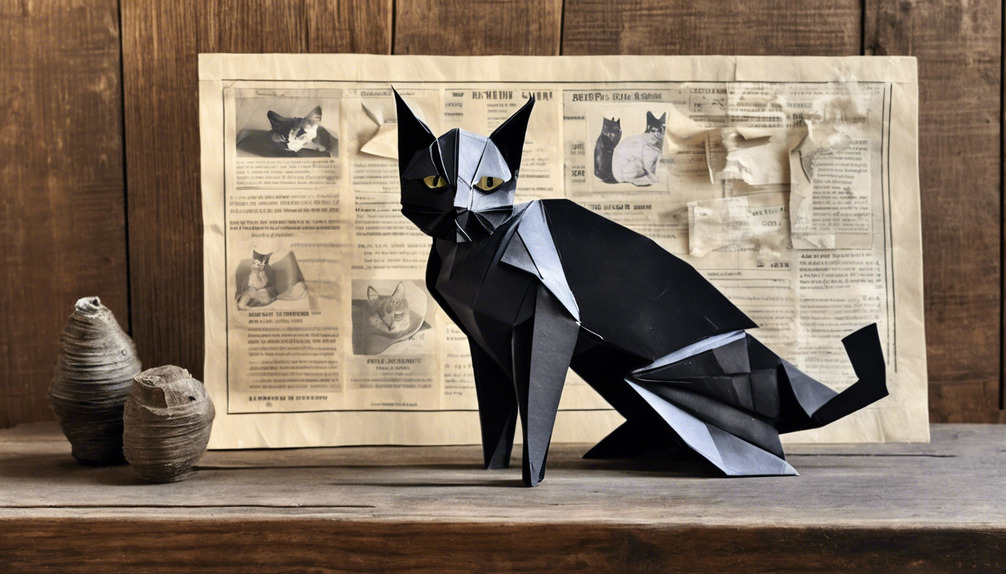You might think that as your cat ages, they become less active and require fewer check-ups. However, as your cat grows older, their health needs become more critical. It’s essential to ensure that they receive regular check-ups to catch any potential health issues early on.
From blood panel testing to dental health checks, there are several crucial assessments that aging cats need to undergo to maintain their well-being. By staying proactive and addressing their health needs, you can help your aging cat live a comfortable and fulfilling life.
Key Takeaways
- Blood panel testing is recommended for senior cats around seven or eight years old to evaluate their overall health, detect kidney disease, and monitor changes over time.
- Regular dental check-ups and cleanings are important for maintaining the oral health of aging cats, as dental problems can affect their overall health and wellness.
- Nutritional evaluation is crucial for ensuring that aging cats receive an appropriate diet to manage weight, digestive issues, and prevent age-related diseases.
- Regular vision and hearing assessments are essential for detecting changes and addressing potential issues in aging cats, as they can impact their health and comfort.
Blood Panel Testing for Senior Cats
As your beloved senior cat ages, it’s important to consider scheduling a blood panel test to assess their overall health and detect any potential issues early on. Wellness testing, such as blood panel testing, is crucial for senior cats to ensure they maintain a good quality of life.
This routine test, recommended for cats entering middle age, around seven or eight years old, includes a comprehensive evaluation of the thyroid gland and can help in early detection of kidney disease and other health issues. A senior blood panel provides important basic information about your cat’s health and helps monitor changes over time. It can also lead to targeted testing for specific health issues.
Discussing with a veterinarian is essential to determine when your senior cat needs a blood panel, as personalized recommendations based on the cat’s age and health are crucial. Though the cost for these tests can be up to $200 for basic tests, some pet health insurance plans may cover them for accidents or illnesses.
Dental Health Check for Aging Cats
Regular dental check-ups play a crucial role in maintaining the oral health of your aging cat. As your cat gets older, dental problems can cause discomfort and impact their overall health. It’s important to be attentive to signs of dental issues, such as bad breath, dropping food while eating, and reluctance to eat.
Senior cats may develop a preference for canned food over dry food due to dental discomfort, so it’s essential to monitor their eating habits closely. Routine dental cleanings and exams are vital for preventing and addressing dental disease in older cats.
Pay attention to signs of dental issues, such as bad breath and reluctance to eat. Monitor your aging cat’s eating habits, as they may prefer canned food over dry food due to dental discomfort. Schedule routine dental cleanings and exams to prevent and address dental disease in senior cats. Be attentive to any changes in your cat’s behavior, as dental problems can affect their overall health and wellness.
Taking care of your senior cat’s dental health is an integral part of ensuring their overall well-being and happiness.
Vision and Hearing Assessment for Senior Cats
Monitor your senior cat for any changes in vision and hearing, as these may indicate age-related issues that require attention and care. Regular observation of your senior cat’s behavior is crucial to detect any signs of vision or hearing impairment. If you notice any changes in your senior cat’s vision or hearing, consult with a veterinarian for assessment and potential management strategies. Senior cats may experience gradual changes in vision and hearing, impacting their overall well-being and quality of life.
Regular vision and hearing assessments are essential to ensure the health and comfort of aging cats.
| Vision Assessment | Hearing Assessment |
|---|---|
| Observe for cloudiness, bumping into objects, or dilated pupils | Watch for unresponsiveness to familiar sounds, increased vocalization, or tilting of the head |
| Schedule regular wellness testing with a veterinarian | Consult a veterinarian for thyroid hormone testing, as thyroid issues can impact vision and hearing |
Caring for your senior cat’s vision and hearing is an important aspect of their overall wellness. By staying vigilant and seeking professional guidance, you can help your older cat maintain a high quality of life.
Nutritional Evaluation for Aging Cats
When evaluating the nutritional needs of your aging cat, it’s essential to consider their changing dietary requirements to ensure their overall health and well-being. Proper nutritional evaluation plays a crucial role in maintaining the vitality and well-being of senior cats.
Here are some key points to consider:
- Nutritional evaluation ensures that aging cats receive the appropriate diet for their changing needs.
- It helps in managing weight, addressing digestive issues, and ensuring adequate nutrient intake for senior cats.
- Understanding the specific nutritional requirements of aging cats can help prevent age-related diseases and promote overall health.
- Evaluating the diet of aging cats helps in managing conditions such as diabetes, kidney diseases, and arthritis.
As cats age, their nutritional needs evolve, making it vital to assess and adjust their diet accordingly. Comprehensive testing, including blood tests and wellness testing, can aid in identifying any specific nutritional deficiencies or health issues such as thyroid hormone imbalances or kidney disease.
Senior Cat Wellness Exam Essentials
As senior cats age, wellness testing becomes increasingly important to detect any hidden diseases and ensure they stay healthy. Regular wellness testing is crucial for monitoring ongoing health problems in aging cats.
When you take your pet to the veterinarian for a physical examination, they may recommend blood tests designed specifically for senior cats. These tests include a complete blood count, biochemistry profile, urinalysis, thyroid testing, and blood pressure testing.
These components are part of a comprehensive wellness exam for senior cats. By conducting these tests, veterinarians can detect health problems early and monitor changes in your cat’s health over time. It’s an essential part of ensuring your senior cat’s well-being and providing them with the best possible care.
Frequently Asked Questions
What Is a Senior Exam for Cats?
A senior exam for cats helps detect hidden diseases in apparently healthy cats. It’s crucial for timely management of issues like high blood pressure, organ failure, cancer, arthritis, and cognitive disorders. Components include blood tests, urinalysis, and physical examination.
How Do You Check Elderly Cats Health?
To check your elderly cat’s health, schedule regular wellness exams. These include complete physicals, blood tests, and discussions about age-related issues. Catching any potential health problems early allows for proper management, leading to a happier and healthier cat.
How Often Should Senior Cats Have Bloodwork Done?
You should have bloodwork done for your senior cat at least once a year. This helps detect any underlying health issues early on. It’s an important part of proactive care to ensure your cat’s well-being.
How Often Should a Elderly Cat Go to the Vet?
You should take your elderly cat to the vet at least once a year for a wellness check-up. However, more frequent visits may be needed based on their age or specific health concerns. Regular monitoring is important for their overall health and well-being.




